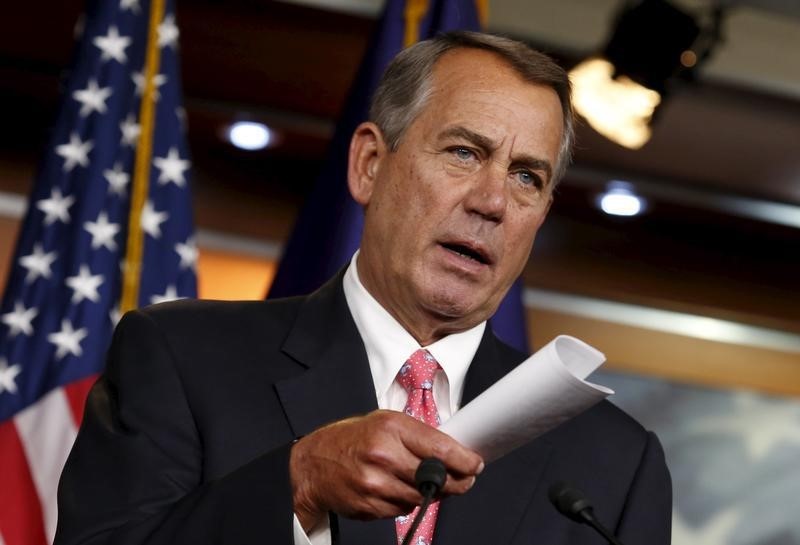By David Lawder
WASHINGTON (Reuters) - U.S. House of Representatives Speaker John Boehner appointed five largely loyal Republican allies to a negotiating panel on Tuesday to work out differences between House- and Senate-passed budgets.
Along with three Democrats, the House negotiators are aiming to quickly reconcile differing levels and specifics of cuts to social safety net programs and increases for military spending.
Both budgets aim to eliminate deficits within 10 years with no new tax revenues, but the House version claims to achieve that a year sooner, in 2024. The Senate version includes more restrictions on an increase in off-budget war funding aimed at supplementing Pentagon funding while nominally maintaining statutory spending caps.
The five House Republican "conferees" do not include any of the House Budget Committee's most conservative members, who had objected to efforts to boost war funding by about $38 billion without any offsetting savings. This forced a rare delay in the panel's vote to approve the budget and led Boehner to restore the funds through an amendment that he pushed through the House Rules Committee.
The Republican negotiators are led by Budget Committee Chairman Tom Price and include panel vice chairman Todd Rokita of Indiana, Diane Black of Tennessee, Mario Diaz-Balart of Florida and freshman Representative John Moolenaar of Michigan.
"In the days to come, we will sit down and discuss how to advance these positive solutions together in order to secure more economic growth and opportunity, hold Washington accountable, promote patient-centered health care, and ensure a strong national defense," Price said in a statement.
Democrats, who have their smallest House minority since 1947, named three negotiators: Chris Van Hollen, the top Democrat on the panel, John Yarmuth of Kentucky and Gwen Moore of Wisconsin. They will largely be relegated to trying to draw attention to spending cuts that hurt the poor
Senate Republican leaders are expected to name negotiators later this week, party aides said.
The timeline for completing the budget, Congress' first since 2009, has slipped since Price and Senate Budget Committee Chairman Mike Enzi launched informal talks during a two week Easter/Passover break. They initially aimed to have a budget passed by a Wednesday deadline, but Enzi told reporters it would likely be at least next week.
"There are a lot of details, and yes we've worked out a lot of them, but we've got a lot to go," Enzi said.

(This version of the story corrects first name of Senate Budget Committee Chairman Mike Enzi in paragraph 9)
